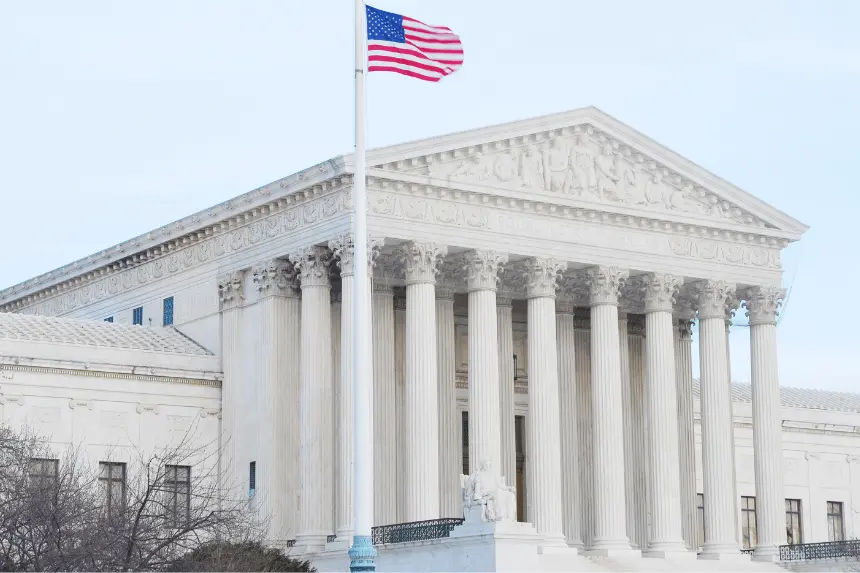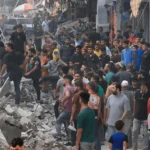The newest ruling by the US Supreme Court in terms of deportation has become a hotly debated issue in the far and wide legal, political, and humanitarian arena. A 6-3 decision by the court gave the go-ahead to the government to proceed with deporting migrants to third-party countries, even though it might not give them a full chance to present their case on why an exception to their deportation should be given. This presidential ruling results in a massive increase in executive power over immigration and a vicious markdown of formal protections to the vulnerable people. Critics state that it poses a danger of subjecting the migrants to risk in foreign and volatile countries. Those in support say it is a required action for national security and the enforcement of immigration. It redefines the future of migrant rights as the ruling is unraveled and leaves a mark that will have long-lasting effects.
- How has the Supreme Court ruled in the recent case of deportations?
- Who are the central figures of the case?
- What was the reason behind the intervention of lower courts to start with?
- What do they mean by the rights of migrants?
- What has the federal government done?
- What does this mean for the overall picture of immigration policy?
- What can happen on an international scale?
- Final Thoughts
How has the Supreme Court ruled in the recent case of deportations?
Last week, the US Supreme Court, responsible for reviewing appeals, issued a decision by a majority of 6-3 that the federal government could resume the deportation of migrants to third countries even though these countries are not necessarily their countries of them. The case essentially reversed an earlier ruling of the lower courts, which demanded that immigration officers allocate migrants a well-rounded chance to appeal against their deportation to such nations if they felt endangered. The decision is a much-watched event in the already existing debate regarding the extent of powers available in the enforcement of immigration. This is what is now commonly known as under the same basket of the US Supreme Court deportations, where there is a clash between issues of national security and due process of migration.
Who are the central figures of the case?
The decision entails eight migrants from different countries, namely Myanmar, South Sudan, Cuba, Mexico, Laos, and Vietnam. According to the reports, these people were deported in May 2025 on a plane that was destined for South Sudan. The Trump administration termed them as bad criminals, claiming that they engaged in murder, arson, and armed robbery. But these allegations were refuted by the legal supporters of the migrants, who said that some of them lacked any criminal record. Legal wrangles were being played out as the migrants were being detained in Djibouti, which is a third country where the US troops operate. Their cases highlight the intricacies and the human cost of carrying out mass deployments of the citizens of the US in deportation without a case-by-case review.
What was the reason behind the intervention of lower courts to start with?
The ruling was earlier made by a federal judge based in Boston who ordered that the migrants could not be removed without being allowed the opportunity to make an argument that they might be subjected to torture or death in a third country. His April 2025 order states that migrants are required to be told and given due process as per the law so that they can put their case forward even in situations where their appeal has not been favored. The order was challenged by the authorities in charge of immigration, who stated that such demands impaired enactment, and it was a nightmare in relation to logistics. The Trump administration had an appeal against that ruling, and it eventually landed at the Supreme Court. The new decision nullifies these safeguards and drastically changes the way and at what time, the government can continue with the deportations.
What do they mean by the rights of migrants?
Critics and advocates of human rights argued that this move would diminish the long-standing safeguards for vulnerable migrants. The minority group justices, Sonia Sotomayor, Elena Kagan, and Ketanji Brown Jackson, in the majority, had an uproar against their majority by citing an extreme use of discretion. According to Justice Sotomayor, thousands of people are likely to come in the path of violence and persecution, including those who are in far-flung locales without legal support. The decision has been termed one of the most important in recent years related to US Supreme Court deportations, as it reduces the amount of procedural protection that had been regarded as the foundation of immigration proceedings.
What has the federal government done?
The Department of Homeland Security hailed it as a victory for national security and the welfare of the people. One of the spokesmen indicated that the government was now in a better position to extract those who are perceived to be threats, yet their home nations do not want to receive them back. The administration insisted that deportation to a third country is one of the valid alternatives to the problem of hard-to-deport persons. Meanwhile, critics believe it brings into play unscrupulous deletions without due caution. The continued process of taking detainees to stay in temporary facilities overseas, such as in Djibouti, has given a fresh twist to the authoritarian processes of deportations, already being witnessed in the US Supreme Court.
What does this mean for the overall picture of immigration policy?
The decision falls within a broader trend of the courts supporting broad executive authority when it comes to immigration matters. The Supreme Court has enabled the Trump administration over the past few months alone to terminate Temporary Protected Status (TPS) protection of Venezuelans and make the entirety of this go on hold, a humanitarian program that serves migrants of Cuba, Haiti, Nicaragua, and Venezuela. And all these decisions, coupled with the latest onehaveas made the US Supreme Court deportations even dominant as far as the immigration policy of the government is concerned. According to analysts, this has been the trend and could continue in case the country continues to speak out on executive power regarding the rights of an individual.
What can happen on an international scale?
The cost of sending the migrants to third countries may jeopardize the relationship with the countries involved, especially when the host countries are not well-invested or stable enough to accommodate the migrants. Some countries, such as South Sudan or Djibouti, might not be ready to provide the safety and lawfulness of the people deported. Moreover, this ruling has a very dangerous precedent that may end up in a row of countries declining to sign deportation agreements at all. The new era of Supreme Court deportations has raised concerns among pro-immigration activists that the US will lose its status as a global regime model in the field of human treatment and protection in asylum.
Final Thoughts
The US Supreme Court’s deportation decision is one of the most defining moments in the national discourse on immigration. It grants the federal government greater authority while raising serious concerns about human rights and legal fairness. Although the administration argues the ruling is vital for national safety, critics warn it may lead to unjust outcomes for vulnerable individuals. As deportations to third countries resume, the country must navigate the delicate balance between protecting its interests and upholding humanitarian values. The burden now shifts to Congress and civil society to ensure that the principles of American justice are preserved. This ruling has placed the US Supreme Court’s deportations at the center of national legal and moral debate.








